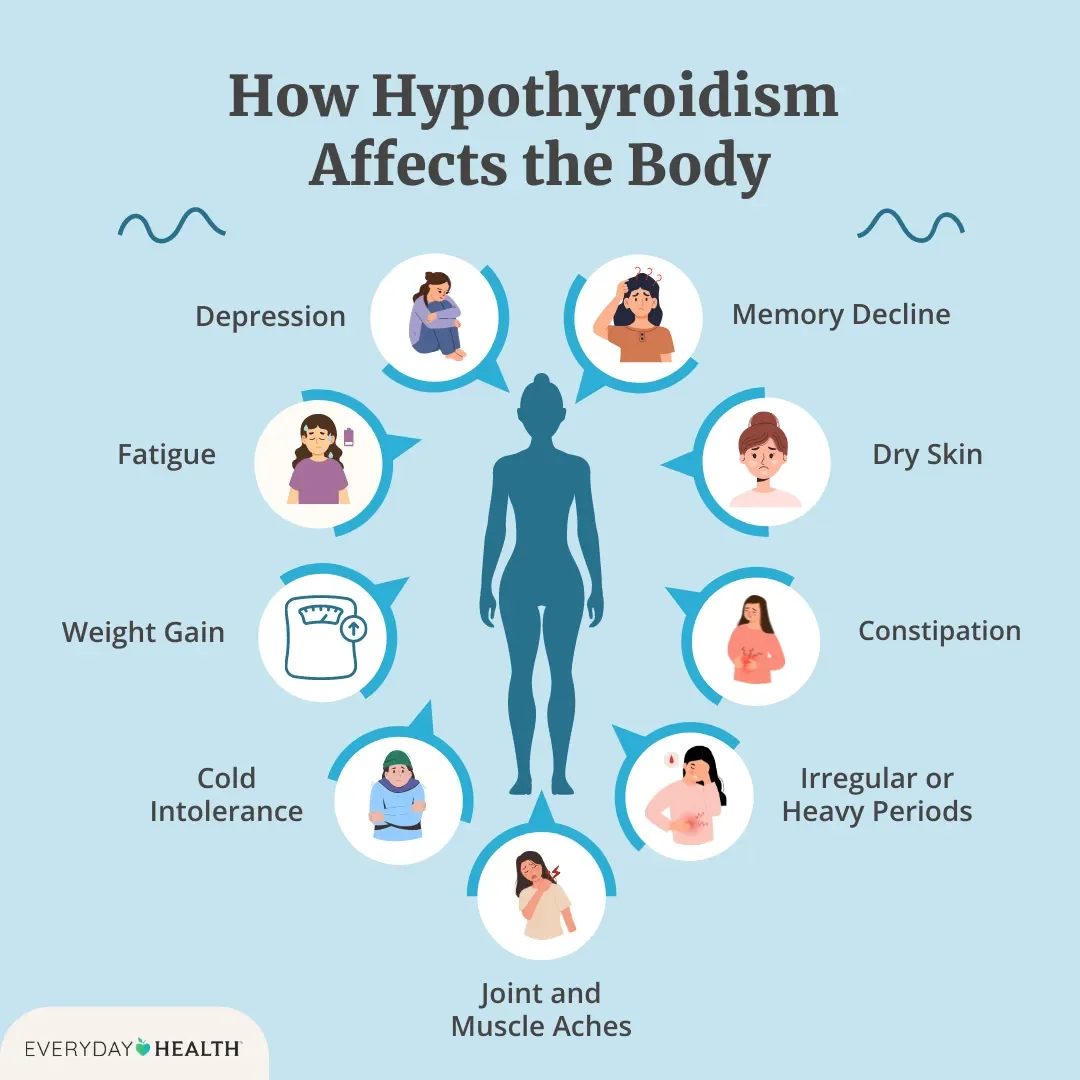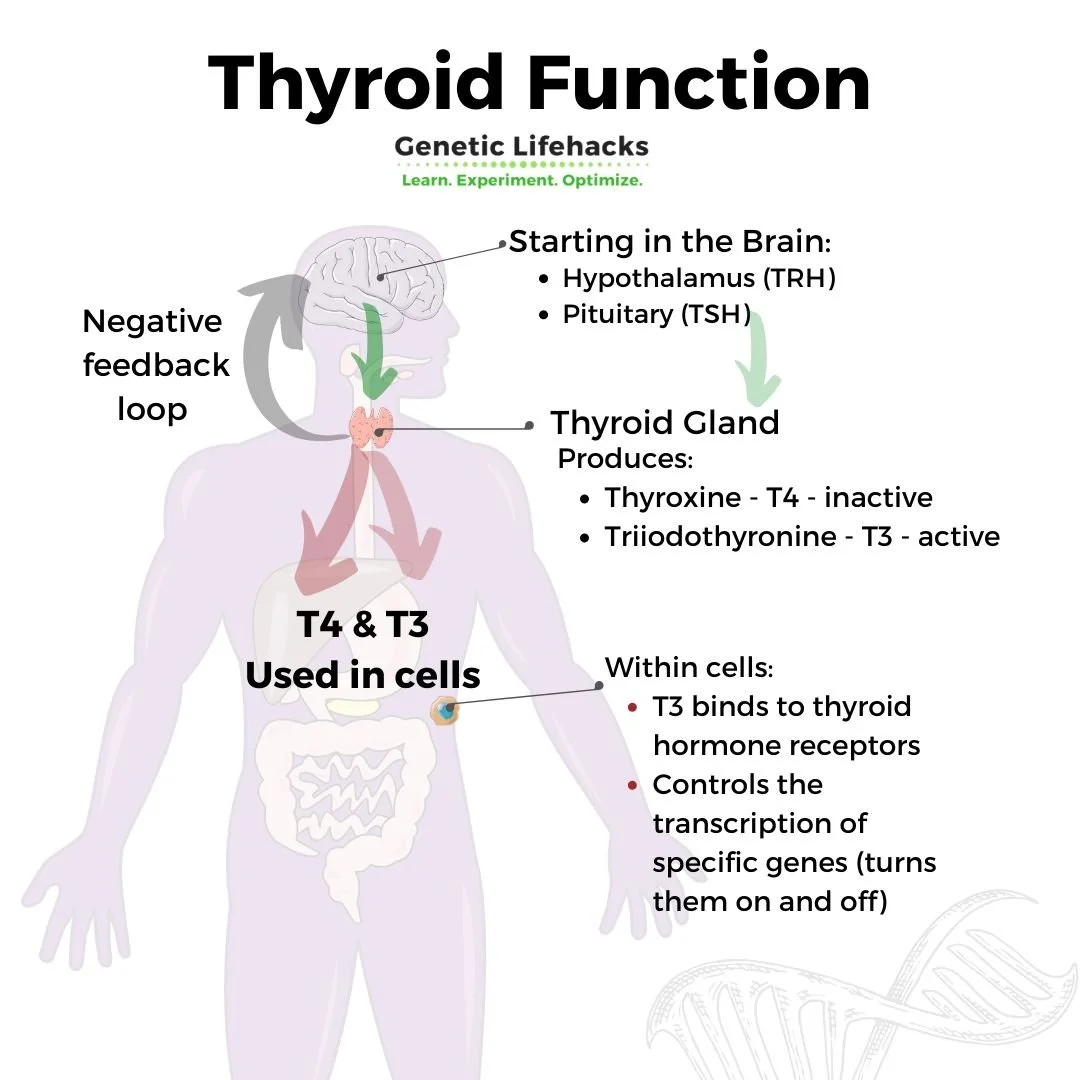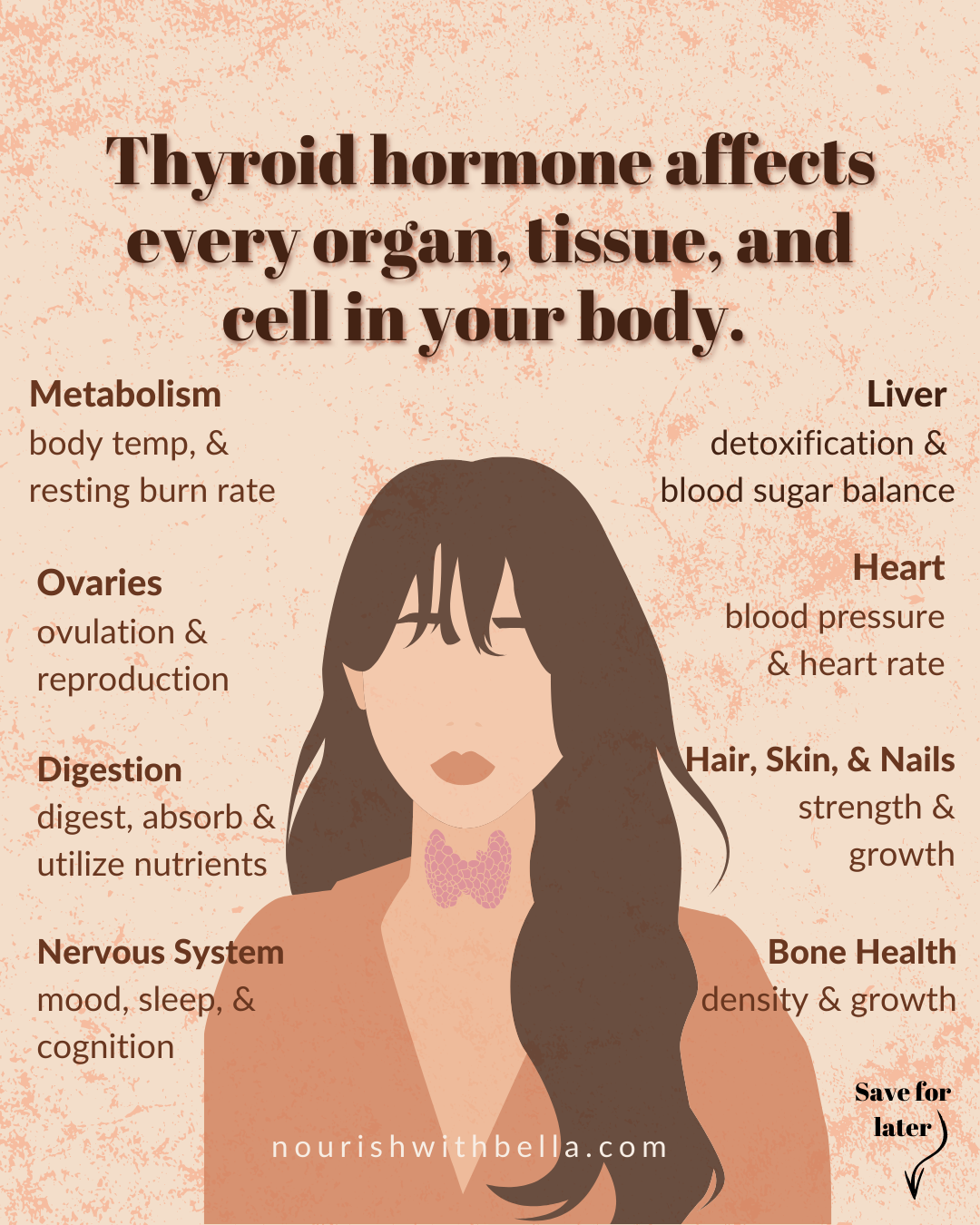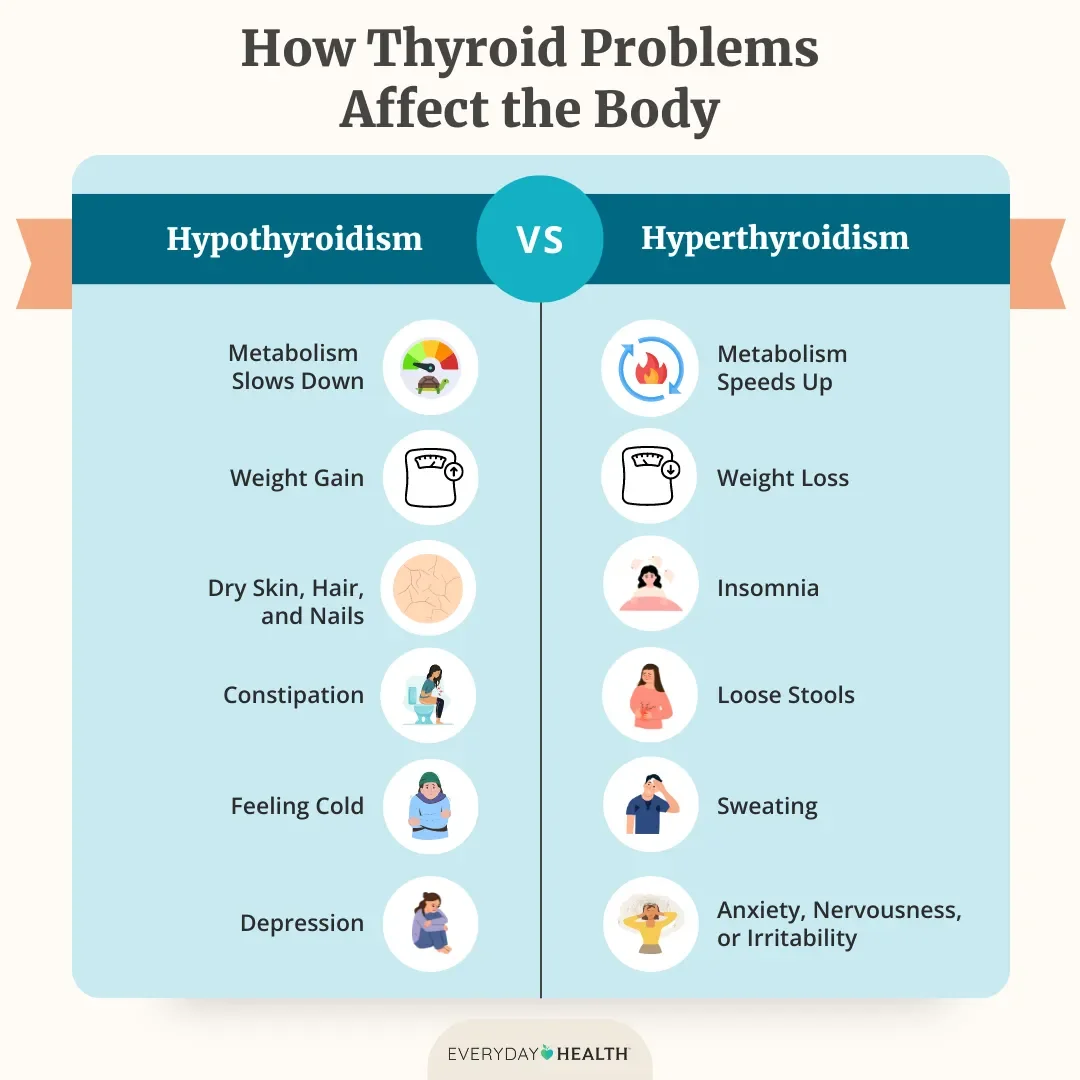Thyroid Conditions & Functional Medicine
If you feel tired, cold, foggy, or like your metabolism has slowed down—but your doctor says your thyroid labs are “normal”—you’re not alone. Thyroid dysfunction is one of the most underdiagnosed and undertreated issues in conventional medicine.
In functional medicine, we take a more complete approach to thyroid health—looking beyond basic labs to understand the root causes of imbalance, autoimmunity, and hormone resistance.
What Is Thyroid Dysfunction?
The thyroid is a small gland with a big job: it regulates metabolism, energy, temperature, brain function, mood, digestion, and more. When it’s not working properly, you can feel off in almost every system of your body.
Thyroid dysfunction can take many forms—including hypothyroidism, autoimmune Hashimoto’s thyroiditis, subclinical thyroid dysfunction, or poor conversion of T4 to active T3. Functional medicine helps uncover what’s really happening—even if you’ve been told your labs are “fine.”
Common Thyroid Conditions We Work With
Hypothyroidism: Low thyroid hormone production causing fatigue, weight gain, constipation, and cold sensitivity.
Hashimoto’s Thyroiditis: Autoimmune destruction of the thyroid gland, often undetected in early stages.
Subclinical Hypothyroidism: Normal TSH with symptoms due to poor conversion or cellular resistance.
Poor T4 to T3 Conversion: Often driven by inflammation, stress, nutrient deficiencies, or gut issues.
Reverse T3 Dominance: The body makes unusable “inactive” thyroid hormone under chronic stress or illness.
Signs and Symptoms of Thyroid Imbalance
Thyroid dysfunction can cause symptoms that are wide-ranging, including:
Fatigue or low energy
Cold hands and feet
Weight gain or difficulty losing weight
Constipation or slow digestion
Brain fog or difficulty concentrating
Hair thinning or loss of the outer eyebrows
Dry skin or brittle nails
Irregular or heavy menstrual cycles
Depression, anxiety, or mood swings
Low libido
Puffy face or water retention
Slowed heart rate or low body temperature
Thyroid Health in Women
Women are 5–8x more likely to develop thyroid issues than men, especially during hormone transitions like:
Postpartum: Common time for Hashimoto’s to appear
Perimenopause or menopause: Estrogen shifts impact thyroid receptor sensitivity
Birth control use: Can deplete nutrients essential for thyroid function
Heavy periods or anemia: Iron is necessary for T4 → T3 conversion
Thyroid Health in Men
Thyroid dysfunction in men is often overlooked, but may show up as:
Fatigue or burnout
Low testosterone
Weight gain and cold intolerance
Depression or low motivation
Poor exercise recovery
What Causes Thyroid Imbalance?
In functional medicine, we explore why the thyroid is struggling, rather than just replacing hormones. Root causes include:
Hashimoto’s autoimmunity: Often triggered by leaky gut, infections, or toxins
Chronic stress: Elevates cortisol, blocks thyroid conversion
Nutrient deficiencies: Iodine, selenium, zinc, iron, B12, and tyrosine
Gut imbalances: Affect nutrient absorption and immune function
Toxin exposure: Fluoride, BPA, heavy metals, mold
Estrogen dominance: Affects thyroid hormone transport
Liver congestion: Impairs hormone metabolism and conversion
How Functional Medicine Supports Thyroid Health
Rather than just prescribing thyroid hormone, we investigate and correct the underlying patterns that disrupt thyroid function. Your care plan may include:
Full thyroid panel (TSH, Free T3, Free T4, Reverse T3, TPO & TG antibodies)
Nutrient testing (iron, selenium, zinc, B12, vitamin D)
Gut and immune system assessments
Detoxification and liver support
Stress and adrenal support for HPA axis balance
Anti-inflammatory nutrition plans (e.g., gluten-free, AIP if autoimmune)
Thyroid-specific nutraceuticals to support hormone conversion and function
Collaboration on natural vs. prescription thyroid medication if needed




